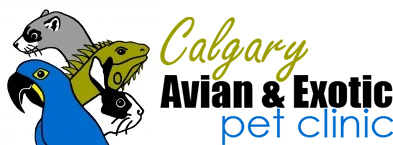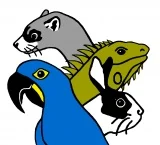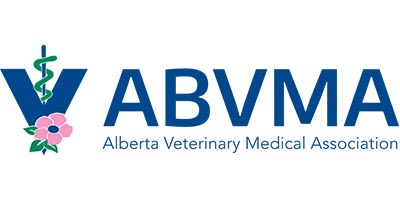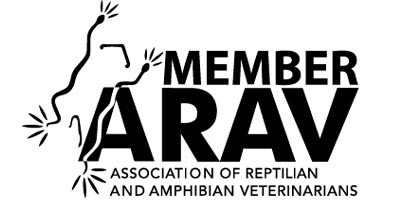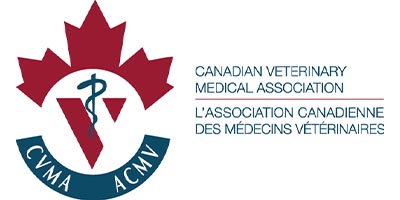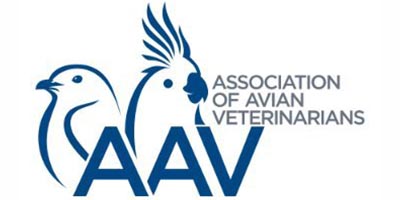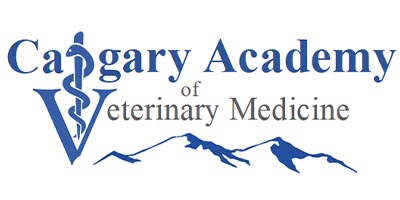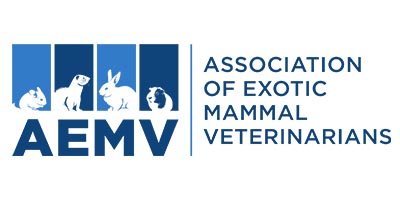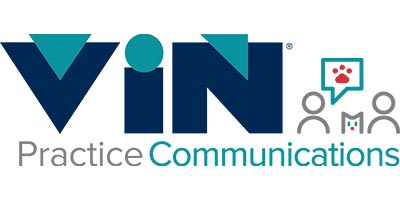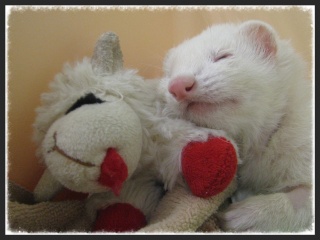 Ferrets are members of the Mustelidae family and have been domesticated since 300 B.C. Ferrets are good natured, playful and curious pets that enjoy the company of their owners and other animals. Ferrets have a tendency to ‘steal’ various items and ‘stash’ them in their special places, living up to their Latin name Mustela putorius furo translated as ‘smelly little thief’. Ferrets can be trained to walk on a leash and to use a litter box. They are sound sleepers and may nip if suddenly aroused. Ferrets like tight places and if their head fits in, the body will follow! Given these inclinations, ferrets should always be supervised when out of their enclosures.
Ferrets are members of the Mustelidae family and have been domesticated since 300 B.C. Ferrets are good natured, playful and curious pets that enjoy the company of their owners and other animals. Ferrets have a tendency to ‘steal’ various items and ‘stash’ them in their special places, living up to their Latin name Mustela putorius furo translated as ‘smelly little thief’. Ferrets can be trained to walk on a leash and to use a litter box. They are sound sleepers and may nip if suddenly aroused. Ferrets like tight places and if their head fits in, the body will follow! Given these inclinations, ferrets should always be supervised when out of their enclosures.
DIET:
Ferrets are true carnivores. This means their digestive tracts are designed to process whole prey that includes the fur, bones and guts, as well as the muscle of the prey they are eating. Their short digestive tract has a fast transit time of 3-4 hours that means not only do they defecate frequently; they need small meals often. Wild ferrets cache part of their hunt in their den to eat later and when pet ferrets stash their food, it reflects this natural behaviour. A rapid gut transit time means less time for absorption of nutrients so the diet must be highly digestible in both protein and energy. A ferret diet, therefore, must be made of highly digestible meat based protein and highly concentrated in fats. Current recommendations suggest 30-40% animal protein (the first three ingredients should be meat) and 15-20% fat. Ferret diets should be carbohydrate and fiber free (no grains, fruits or vegetables) as these cannot be digested well by the ferret and can result in nutritional deficiencies, digestive upsets, bladder stones and poor hair coats. Bones should never be offered as they can become lodged in the digestive system causing a blockage. Fresh water should be available at all times.
Treat items should be scrutinized for sugar content. Feeding a ferret an occasional treat of whole prey (mice or chicks), eggs or a bit of organ or muscle meat are both nutritionally sound and psychologically stimulating. Properly fed ferrets should not need any supplementation, but a fatty acid supplement can be used if the coat and skin are dry from causes other than over-bathing, poor nutrition or endocrine disease. Ferrets can develop hair accumulation in the stomach and a hairball laxative (one without added sweeteners) can be used every few days as needed.
HOUSING: 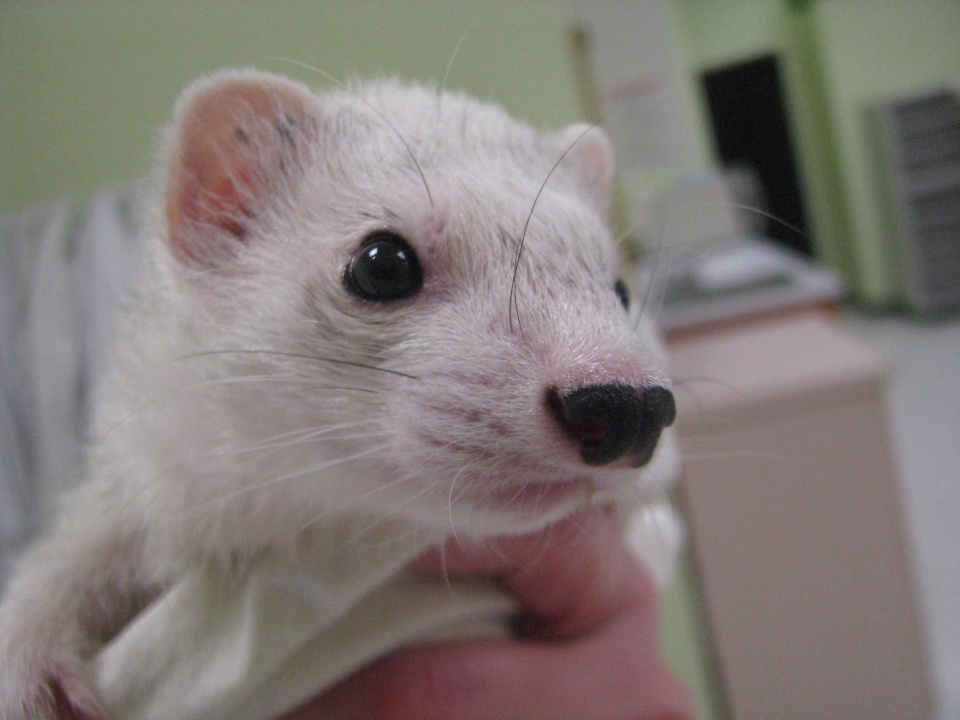
Ferrets should be kept in secure cages when unsupervised. Multi-level cages with small bars and solid flooring are preferred. Litter boxes can utilize any non-clumping cat litter (avoid corncob, pine and cedar shavings) and should be changed daily. Ferrets like to burrow and towels, old sweatshirts or ferret hammocks make suitable bedding material. A ferret’s environment, both in and out of the cage should be stimulating and enriched with toys, boxes and tubing. Toys should be small and easy to carry and all products given to a ferret should be free of latex, foam or rubber to prevent accidental swallowing of chewed off pieces. In multi-ferret households, it is important to provide retreat areas for the less dominant ferrets. Cardboard boxes, with strategically sized holes, allow the pursued ferret a quick entry and space in which to quickly turn and defend against the aggressor.
The attraction to small, enclosed spaces means ferret proofing a home must be a detailed process. Ferrets can climb into washers, dryers, dishwashers, drawers and recliner chairs and can squeeze through very small window and door openings. Objects that have been surgically removed from the digestive tracts of ferrets include items such as earplugs, shoe rubber and licorice candy so careful diligence is required to keep these ‘smelly little thieves’ out of trouble.
PHYSIOLOGY:
The life expectancy of a ferret is between 5-7 years of age. Young ferrets are called “kits” and are born into litters of 2-14 young, weaning between 6-8 weeks. A female ferret (jill) is ready to breed when her vulva is fully swollen and a male (hob) when the testicles are enlarged and descended into the scrotal sac. Gestation lasts about 6 weeks.
HANDLING AND GROOMING:
Ferrets are easy to handle with gentle support under the chest, but because they both protect themselves and play with their teeth, ferrets can nip if over-excited or startled and should always be supervised when around small children and other animals. Ferrets moult their hair coat twice a year and noticeably lose body fat in the spring and regain it in the winter. Ferrets have a natural musky odour and two prominent scent glands under the tail that are typically removed when the animal is spayed or castrated. Oil glands throughout the skin give ferrets a natural muskiness – part of having this species as a pet! Bathing should be reserved for removing debris from the fur that the ferret is unable to clean itself. For ferrets that love to play in water shallow tubs can add to their environmental enrichment. Because ferrets like to dig, routine nail trims will help prevent nails from catching and breaking.
SURGICAL CARE: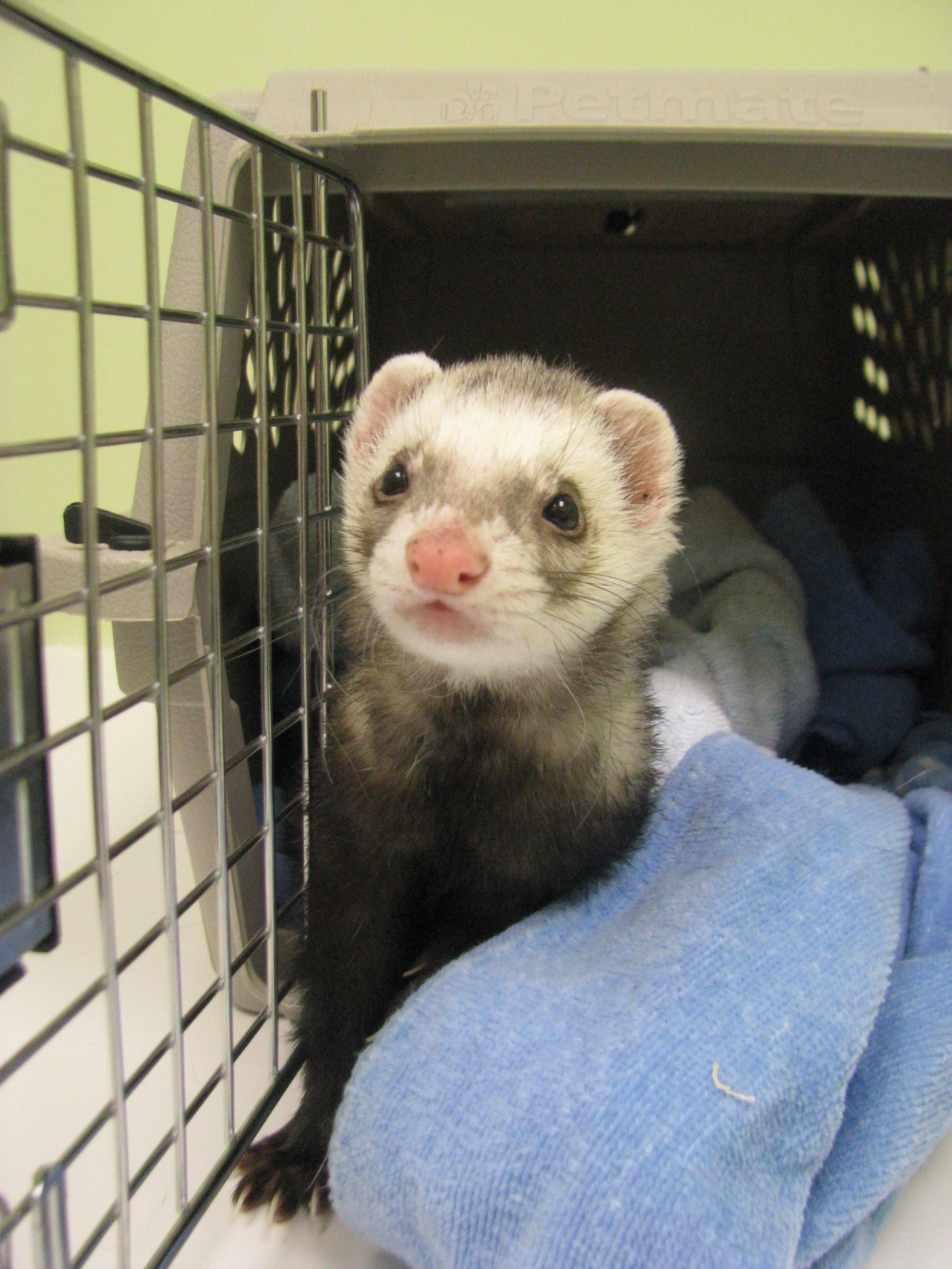
Routine spaying and castrating of ferrets is recommended for all non-breeding animals. Non-spayed females can remain in a prolonged heat cycle if not bred, causing anemia (lack of red blood cells). Descenting, or surgical removal of the scent glands from under the tail, is often done at the same time. Ferrets can develop dental tartar and gingivitis (gum disease). Dental tartar treats and tooth brushing can help decrease plaque accumulation, but dental cleaning and polishing by a veterinarian may be needed.
MEDICAL CARE: Ferrets are extremely prone to canine distemper and should receive their first vaccine at 6 weeks of age and booster vaccinations every 4 weeks until 14 weeks of age after which the ferret is vaccinated yearly. Rabies vaccine is recommended at 12 weeks of age, then yearly. Only licensed ferret vaccines should be used to ensure proper immunity. Multivalent dog vaccines (protect against multiple diseases) are not recommended in ferrets as the additional components are unnecessary and may even be harmful to a ferret.
As with any vaccination, adverse reactions can occur and these are common in ferrets. To decrease reactions, an antihistamine injection is given at least 10 minutes prior to vaccination, and distemper and rabies vaccines are not given at the same time. Vaccinated ferrets are asked to remain at the clinic for 30-40 minutes in case of a reaction. Reactions include vomiting, diarrhea and lethargy, though a serious reaction can result in cardiac and respiratory collapse and is life threatening.
Ferrets are prone to ear mites, pneumonia, viral and bacterial infections, many different types of gastrointestinal syndromes, heart disease, hairballs, dental disease, and many forms of cancer. Ferrets can get human influenza. Signs of vomiting, diarrhea, lethargy, inappetence, marked hair loss, or a runny nose or eyes all warrant a veterinary visit. Young ferrets have a tendency to swallow small objects and foreign body blockages are common. All ferrets should have a stool sample checked for parasites.
ADRENAL GLAND DISEASE: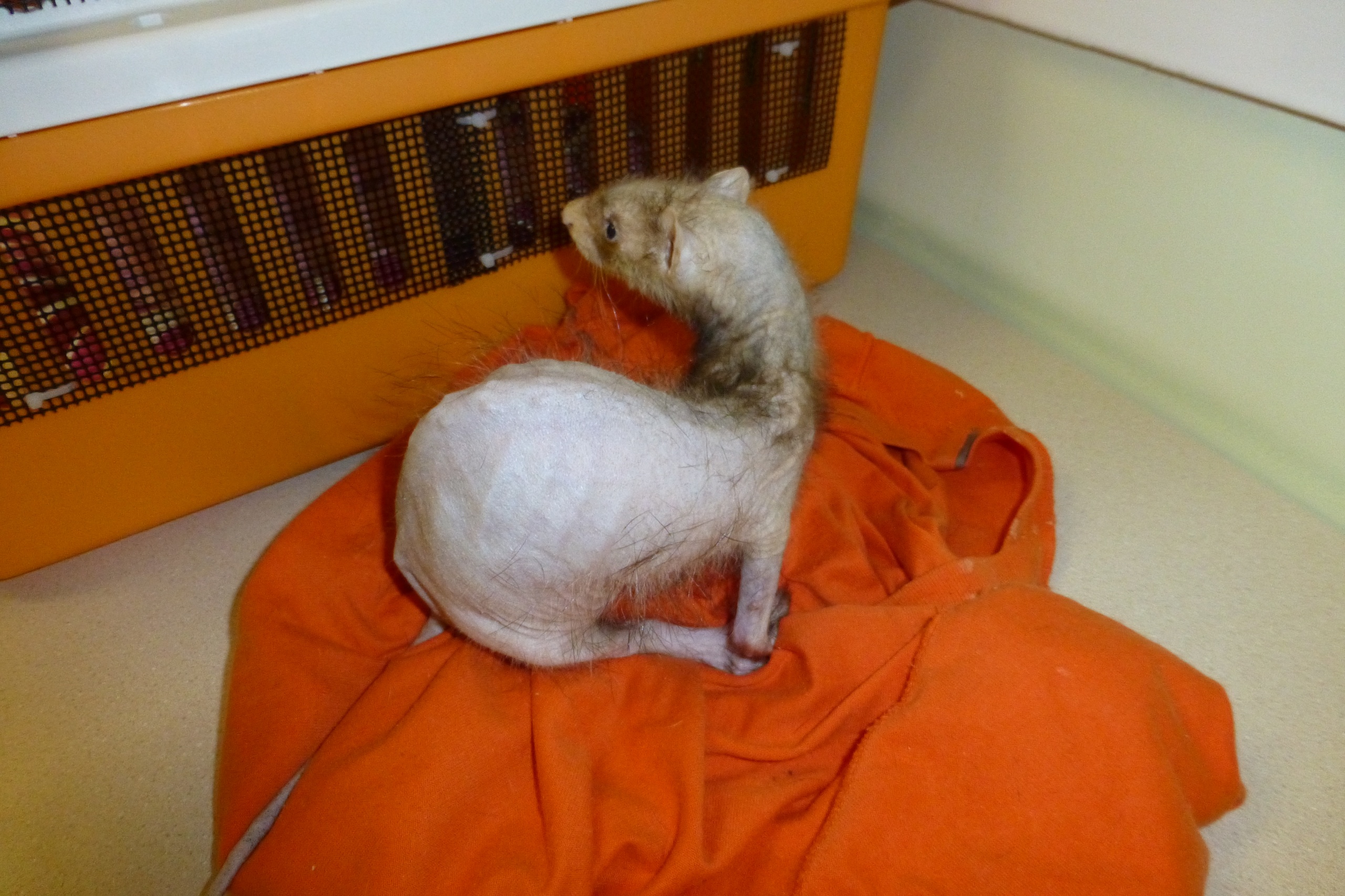
There are two adrenal glands in the ferret, both located in the body just above the kidneys. The adrenal gland is divided into an inner and outer layer and functions to control body electrolytes and produce various hormones. In ferrets, adrenal disease occurs when the inner layer of the gland becomes hyperactive or cancerous, producing an excess of sex hormones. This results in wide variety of clinical signs that include a swollen vulva (mimicking estrus or ‘heat’), sexual behavior, an increase in body odour, symmetrical hair loss, excessive itchiness, prostate enlargement and urine dribbling or blockage.
Diagnosis of adrenal disease is based on clinical signs and by testing hormone levels, radiographs (x-rays), ultrasound, or exploratory surgery. Surgical removal of the affected adrenal gland is the treatment of choice; however, when surgery is not an option, hormonal therapy can help control (not cure) the clinical signs of adrenal disease. Adrenal cancers can spread to other organs in the ferret’s body. Consultation with a veterinarian experienced in ferret care will help determine the extent of the problem and best approach for each individual ferret.
INSULINOMAS:
Insulinomas are tumours of the pancreas’s insulin producing beta cells. These cells become overactive, producing too much insulin, which in turn deprives the blood stream of necessary blood sugar. A state of “hypoglycemia” results and produces the clinical signs and the life-threatening nature of this syndrome.
Insulinomas occur most commonly in ferrets three or more years of age. Clinical signs include hind leg weakness, a dazed facial expression, collapse, unconsciousness, and seizures. Ferrets often drool, chomp and paw at their mouths. Episodes are usually intermittent and of variable severity and often occur after active play or upon waking from sleep. In mild cases, the signs may last a few minutes but severe cases can produce non-stop seizures and are veterinary emergencies.
Diagnosis is made on physical examination with blood testing (including blood glucose and insulin levels), radiographs, and ultrasound. Medical therapy is started when the hypoglycemic episodes become frequent or severe and treatment is tailored to the individual by frequent testing of the blood sugar level. Surgical removal of tumour nodules from the pancreas can improve the ferret’s quality of life and may alleviate the need for drug therapy however, it appears that this cancer has an unpredictable rate of spread. Insulinomas are rarely ‘cured,’ only managed.
Ferrets with insulinomas should be encouraged to eat frequent small meals, especially after playing or sleeping. Diets containing carbohydrates should be avoided. Karo syrup or Nutrical@ should be kept on hand and fed to the ferret for emergency treatment of mild low blood sugar episodes. Ferrets with insulinomas require careful monitoring, both at home and by a veterinarian.
All pet ferrets should be seen annually by a veterinarian experienced in ferret care and biannually after two years of age.
THIS INFORMATION IS MEANT AS A GUIDELINE ONLY AND IN NO WAY REPLACES CONSULTATION WITH A VETERINARIAN.
